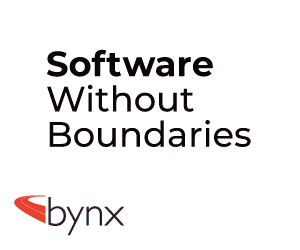
The continued decline of diesel market share and the increased provision of total corporate mobility will be two of the key fleet trends for the year ahead, according to the head of a major European fleet management company.
Dr Jörg Löffler, CEO of Fleet Logistics, says that demand for diesel will continue to fall throughout the year across Europe and not just the UK, where the decline in diesel demand has been most marked.
The shift has been prompted by concerns over the negative health effects of diesel emissions in urban areas, particularly for older models, which has led to national legislative changes that many have interpreted as discouraging all diesel car use.
However, buyers are mostly switching back to petrol/gasoline-engined vehicles, which tend to have higher fuel consumption and produce more carbon dioxide (CO2) emissions.
Dr Löffler said: “We expect the trend of falling diesel demand to continue across Europe, not least because the total cost of ownership for diesel cars will rise as the prices of diesel and gasoline are brought into equilibrium at the pumps, due to governmental changes in fuel duty.
“However, the alternative to diesel is far from straightforward. Gasoline cars burn more fuel and therefore emit more CO2, while hybrid vehicles are fine in an urban environment but out on the open road are far from fuel-efficient and offer no discernible advantage at all.
“Getting the right fleet mix of vehicles will become increasingly important going forward, and we urge most major corporates to discuss the situation in detail with their fleet management provider to arrive at the optimum solution.”
Dr Löffler also believes that the issue of total corporate mobility will become increasingly important as many companies examine their overall transport and mobility needs beyond the provision of company cars.
He said: “To a certain extent we are being pushed by some clients in this area, although with others we have had to adopt a ‘pull’ approach. But there is not a one-size-fits-all solution to this issue.
“Amongst companies, like banks and insurance companies for instance, which are largely based in large cities often with younger, well-educated employees with different attitudes towards family life, a policy of providing a car for 365 days of the year might not be appropriate.
“They may want the use of public transport paid for by the company for most of the time, but with access to a company vehicle at certain times. Pool cars may be a more obvious solution in that event and in the long-run car sharing and other mobility offerings.
“However, for manufacturing companies, for example, which are often based in rural areas, the provision of company vehicles for different parts of the workforce, such as service and sales, may still be the most appropriate solution.”
As part of its new business strategy, Fleet Logistics aims to support clients as a mobility enabler, rather than limiting itself to providing fleet management services.
Dr Löffler said: “We are happy to engage with any of our clients to help them arrive at the correct mobility solution for their business.”
Another key trend for 2018 looks likely to be the continued growth in recharging points for electric and hybrid-electric vehicles with more players entering the arena.
Dr Löffler pointed to the recent partnership between Shell and major German car manufacturers to create a pan-European charging network as evidence of the rapid speed of change within the European charging infrastructure.
Just before Christmas, Shell announced it was to join a consortium of major vehicle manufacturers, including BMW Group, Daimler, Ford Motor Company and VW Group, called Ionity, which aims to launch a network of 400 ultra-fast charging stations for electric vehicles in 10 European countries.
Dr Löffler said: “We believe we will continue to see rapid development of the European recharging arena with a number of different players entering the market. This latest initiative from Shell reflects that many of the oil companies are preparing for a new business model.”
In response to changing customer needs, one of Fleet Logistics’ key initiatives for 2018 will be the creation of an innovation board made up of fleet customers who will discuss the latest trends in the fleet marketplace and review possible solutions.
The first of the annual events will be held this year in Germany, where a group of 10 -15 innovative customers will spend one or two days discussing the most important fleet topics.
Fleet Logistics is also building on its expansion into new countries with initiatives to make the most of its larger global footprint.
Dr Löffler said: “Initiatives that we began in 2017 will come fully to fruition this year. These include completing the harmonization of two IT systems into one with more efficient processes and greater in-depth reporting and dashboards.
“We will see a much higher level of automation that will allow us to deliver our services to our customers with greater depth, effectiveness and efficiency.
“2018 will also see us, after a year of consolidation last year, returning to a stronger growth path and we will be looking to recruit more good, highly professional sales staff this year to help us achieve that objective going forward.”
Fleet Logistics supports a contracted vehicle fleet of around 180,000 vehicles with a related cost base of €2.5 billion on behalf of leading multi-national corporations.
In 2012, it was acquired by TÜV SÜD, the international technical services company.








